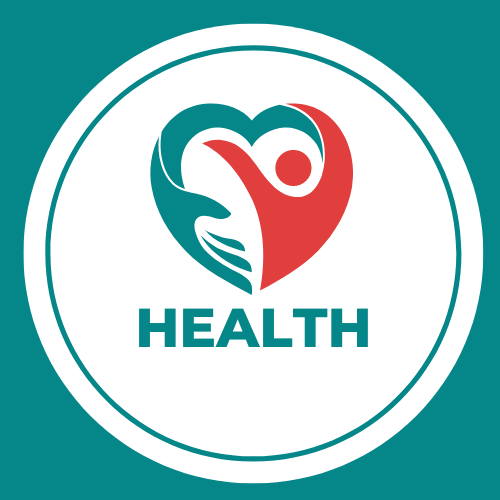In the realm of mental health and personal development, journaling stands as a quiet yet powerful tool for self-discovery, emotional processing, and overall well-being. Whether used as a daily practice or during times of emotional turmoil, journaling offers a safe space for individuals to explore their thoughts, feelings, and experiences in depth. This article delves into the therapeutic benefits of journaling, explores various techniques and approaches, and discusses how this simple yet profound practice can facilitate emotional reflection and growth.
Understanding Journaling: A Pathway to Self-Discovery
At its core, journaling involves the act of writing down thoughts, emotions, and reflections on a regular basis. It serves as a private and non-judgmental outlet where individuals can express themselves freely and explore their inner worlds. Unlike conversations or even internal dialogues, journaling allows for a deeper level of introspection and self-expression, providing clarity and insight into one's emotional landscape.
Therapeutic Benefits of Journaling
Emotional Processing: Writing about emotions can help individuals make sense of their feelings, identify patterns, and gain perspective on challenging situations. By putting thoughts into words, emotions become tangible and more manageable, reducing their intensity.
Stress Reduction: Journaling has been shown to reduce stress by providing a healthy outlet for expressing emotions and concerns. The act of writing can be cathartic, releasing pent-up emotions and promoting relaxation.
Enhanced Self-Awareness: Regular journaling encourages self-reflection and introspection, fostering greater self-awareness. Through writing, individuals can uncover subconscious thoughts, beliefs, and motivations, leading to a deeper understanding of themselves.
Problem Solving: Journaling can facilitate problem-solving by allowing individuals to brainstorm ideas, weigh options, and evaluate potential solutions. Writing about challenges and possible outcomes can clarify thinking and guide decision-making processes.
Emotional Regulation: Engaging in reflective writing can help regulate emotions by promoting mindfulness and reducing emotional reactivity. Writing about stressful experiences or strong emotions enables individuals to process and manage their reactions more effectively.
Techniques and Approaches to Journaling
While the basic concept of journaling is simple—writing down thoughts and feelings—there are various techniques and approaches that individuals can explore to enhance its therapeutic benefits:
Free-Writing: Set a timer and write continuously without pausing to edit or censor thoughts. This technique encourages spontaneity and allows for the free flow of ideas and emotions.
Prompted Journaling: Use prompts or questions to guide writing sessions. Prompts can focus on specific emotions, experiences, or goals, providing structure and direction for introspection.
Gratitude Journaling: Write about things you are grateful for each day. This practice promotes positivity and shifts focus away from negative thoughts, fostering a sense of appreciation and well-being.
Stream of Consciousness: Write whatever comes to mind without worrying about grammar, structure, or coherence. This technique can reveal underlying thoughts and feelings that may not surface through structured writing.
Reflective Journaling: Reflect on past experiences, interactions, or events. Consider what was learned, how you felt, and what insights were gained. Reflective journaling promotes self-awareness and personal growth.
Integrating Journaling into Daily Life
The effectiveness of journaling lies in its consistency and regularity. Establishing a journaling routine can be beneficial in maintaining emotional well-being and promoting self-discovery. Here are some tips for integrating journaling into daily life:
Choose a Time and Place: Set aside dedicated time each day for journaling, whether it's in the morning to reflect on the day ahead or in the evening to unwind and process daily experiences.
Make it a Ritual: Create a ritual around journaling to make it a comforting and enjoyable experience. Light a candle, play calming music, or sip a cup of tea to create a relaxing atmosphere.
Use Prompts or Themes: Experiment with different prompts or themes to guide your writing sessions. Themes could include emotions, goals, relationships, or challenges you're facing.
Be Gentle with Yourself: Journaling is a personal practice, so there are no right or wrong ways to do it. Allow yourself to write freely without judgment or self-criticism.
Review and Reflect: Periodically review past entries to track progress, identify recurring themes or patterns, and celebrate achievements. Reflecting on your journaling journey can provide valuable insights into personal growth and development.
The Therapeutic Journey of Self-Discovery
Journaling serves as a companion on the journey of self-discovery and emotional healing. It provides a safe haven for exploring complex emotions, processing difficult experiences, and nurturing personal growth. Through regular practice, individuals can cultivate greater self-awareness, develop healthier coping mechanisms, and gain clarity on their values and aspirations.
Case Studies and Personal Testimonies
Numerous individuals have found solace and empowerment through journaling. For example, Sarah, a busy professional, uses journaling to unwind and reflect on her day. By writing down her thoughts and emotions, she finds clarity amidst the chaos of her daily life. Similarly, Mark, who struggled with anxiety, found that journaling helped him identify triggers and manage his stress more effectively.
Conclusion: Embracing the Power of Journaling
In conclusion, journaling serves as a valuable therapeutic tool for emotional reflection, self-discovery, and personal growth. By engaging in reflective writing, individuals can navigate their inner worlds, gain insights into their emotions, and cultivate resilience in the face of challenges. Whether used for stress reduction, problem-solving, or enhancing self-awareness, journaling offers a profound means of connecting with oneself and fostering a deeper understanding of one's emotions and experiences.
As we continue to explore the multifaceted benefits of journaling, it becomes clear that this simple yet transformative practice has the potential to enrich lives, nurture emotional well-being, and empower individuals on their journey towards personal fulfillment and mental health. By embracing journaling as a regular part of daily life, individuals can harness its therapeutic power to foster emotional resilience, cultivate self-awareness, and embark on a path of continuous self-discovery and growth.

.png)
